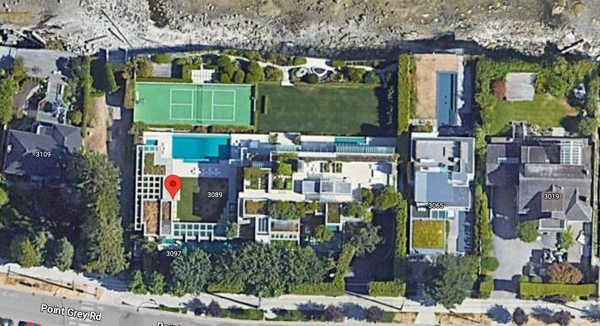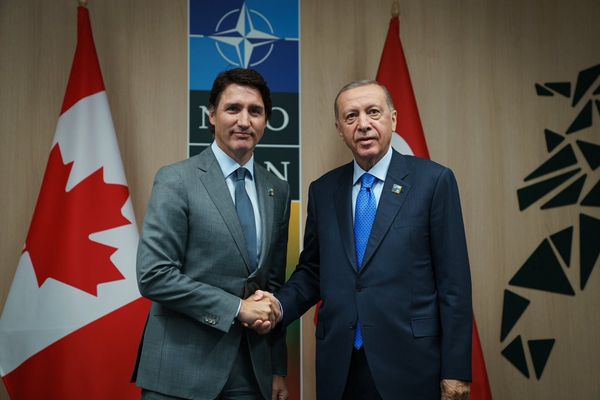Good morning. A 2016 study by the Organization for Economic Co-operation and Development found that Canada had among the most expensive child care costs in the world, with the average family spending around 22.2 percent of their income on child care costs. That figure climbed to almost one-third of income for single parents.
This week, Erin O’Toole’s Conservative Party announced its plan to cancel the Liberal government’s $30 billion child day-care program that promises to cut fees in half in the next year for an average of $10 per day within five years.
The federal government has signed agreements with eight provinces to implement the program, with conservative-governed Ontario and Alberta being among the holdouts.
In place of the Liberal program, the federal Conservatives would transform the existing tax-deduction that parents receive for child care expenses into a refundable tax credit for up to 75 percent of child care costs for low-income families.
However, Child Care Now executive director Morna Ballantyne says O’Toole’s plan amounts to a repeat of the failed cash transfers that were introduced by former prime minister Stephen Harper back in 2006.
“(Harper) cancelled the agreements that had been reached by the previous government with provinces to start building the system of early learning and childcare, and instead instituted a cash transfer to parents, and we saw for 10 years the failure of that policy,” Ballantyne told The Maple.
Another key issue, she added, is the shortage of early childhood educators (ECEs).
“The main barrier to the challenges of recruiting and retaining are the very low wages paid to ECEs,” said Ballantyne. “One of the main reasons the wages are so low is that we don’t have a publicly funded and managed system of early learning and childcare.”
According to a study recently published by Statistics Canada, ECEs make an average annual income of $24,000, which is less than half the average annual income of workers in all other professions. Ninety-five percent of ECEs are women.
Ballantyne said market-based approaches to childcare have meant that the working conditions and wages of ECEs are entirely dependent on the revenue received through fees paid by parents.
“It pits those who are trying to provide the service against those who are desperately in need of the service,” she explained. “The only thing that will address these problems is publicly funding and building a system of early learning and childcare, and making it a government responsibility.”
Ballantyne said the lack of access to affordable childcare is a major obstacle to parents, particularly young mothers, who are looking to enter the paid workforce and obtain economic security.
“We know that the biggest gaps in labour force participation are between men and women,” Ballantyne explained. “If you build a system of early learning and childcare, that in itself is a major job creator, and a stimulator of all kinds of economic benefits.”
In particular, said Ballantyne, racialized women are negatively impacted by the lack of access to affordable childcare.
“We know that racialized women are often forced into precarious, part-time employment because of not being able to access reliable child care,” she explained.
Ballantyne said that although she is not surprised by O’Toole’s plan, she was still taken aback by the timing of the announcement, given the ongoing pandemic.
“There’s been such wide recognition, including by the business and even the corporate sector of Canada, that a childcare system is going to be essential for getting the economy going,” said Ballantyne. “Essentially, on the first full day of the campaign, the Conservatives announce they’re cancelling the agreements in the same way that Stephen Harper cancelled the previous agreements.”
Few Savings To Be Had
According to David Macdonald, a senior economist at the Canadian Centre for Policy Alternatives, the Conservatives’ tax credit is unlikely to make child care more affordable.
“Childcare fees are just too high in big cities for it to really lead to affordable outcomes in places like Toronto, where the childcare fees for infants are closing in on $20,000 a year,” Macdonald told The Maple. “A $6,000 credit even at the maximum value does very little.”
As well, Macdonald added, very few people would likely receive the $6,000 credit, because a family making $30,000 would not be in a position to pay $8,000 upfront for childcare.
“You can’t spend a third of your income on childcare in hopes you’ll get a credit back in three months or a year from now, and so that maximum value is extraordinarily rare for anyone to ever get it,” said Macdonald. “In the end, what it will mean for most parents is very little change in terms of how much they pay after the credit.”
Why Are The Conservatives Taking This Approach?
For Macdonald, the reason why the Conservatives are looking to replace the Liberals’ child care plan with a tax credit is simple.
“It’s far cheaper. Because you’re not providing nearly as much support to reduce fees, it doesn’t cost as much,” he explained. “The cost of the new program, the refundable credit, will likely be roughly equal to the cancellation of the old (tax credit). And what that means is the entire cancellation of the $10 a day program can then go on to fund other things completely unrelated to child care.”
Macdonald said the most reliable way to deliver affordable childcare is through capping fees at a certain level, and then creating direct transfers to providers, similar to the system in Quebec.
“That seems to be the system that’s delivering the most savings for parents,” he said.
However, Macdonald added, “in the rollout of a plan like this it shouldn’t only be about reducing fees, but also about building spaces, so there are more spaces for that increased demand.”
Thank you for reading The Maple. We’re not funded by corporations or advertising, which means our public-interest journalism is only possible with support from ordinary readers like you. If you’re not already subscribed to our daily newsletter, please consider signing up today for just $48 per year.

Election News
- Indigenous leaders Pam Palmater and Cindy Blackstock warn that the federal election has pushed coverage of residential school grave sites “to the wayside,” CTV News reports. Palmater said addressing the ongoing genocide against Indigenous peoples should be a number one priority this election.
- Standing in front of a toy display, Conservative Party Leader Erin O’Toole announced a Tory government would introduce a month-long GST holiday for December 2021, a measure that would cost $1.5 billion in lost revenue. CCPA economist David Macdonald said the measure is unlikely to be effective at stimulating economic growth, the Star reports.
- In this explainer piece, CTV News outlines where the major federal parties stand on COVID-19 vaccine mandates for federal employees — a wedge issue that has so far caused Conservative Leader Erin O’Toole some headaches on the campaign trail. In a nutshell, the Liberals and NDP support vaccine mandates, and would enforce consequences against federal workers who refuse, except in cases where there are medical reasons for not receiving a shot. O’Toole, whose voter base is by far the most vaccine hesitant of the major parties, would require federal public servants who aren’t vaccinated to pass a daily rapid test.
- Vancouver-based harm-reduction activist Garth Mullins criticizes NDP and Green Party’s plans to tackle the ongoing drug-poisoning crisis. Mullins said the NDP platform misrecognizes the nature of the crisis, and that the Greens provide only “afterthoughts” about those who are dying.
- Green Party Leader Annamie Paul calls for the Governor General to reinvoke Parliament for a debate on the situation in Afghanistan, which CTV News correspondent Michel Boyer says is “constitutionally impossible.”
- Liberal Leader Justin Trudeau, NDP Leader Jagmeet Singh and Conservative Leader Erin O’Toole condemn anti-semitic graffiti painted on election campaign signs belonging to Liberal candidates Rachel Bendayan and Anthony Housefather.
Other News
- The Progressive Conservative party will take power in Nova Scotia for the first time since 2009 after a surprise provincial election win.
- An international study published on Tuesday by the peer-reviewed Environmental Research journal finds that the National Post, Postmedia’s flagship newspaper, had “significantly less accurate coverage of climate change” than its counterparts between 2005 and 2019. By contrast, the Toronto Star was among those that had the “best or most scientifically accurate coverage of climate change.”
- Justin Trudeau says Canada has “no plans” to recognize the Taliban as the legitimate government of Afghanistan, CTV News reports. Other federal party leaders also say they if they form the next Canadian government they will not recognize the Taliban.
- In Ricochet, Chen Zhou reports that Canada talks a good game on climate, but has yet to sufficiently act on reports published by the Intergovernmental Panel on Climate Change (IPCC).
LISTEN: Sandy Hudson and Nora Loreto discuss important issues that should be covered this election cycle but will almost certainly be ignored.
We are back!
— Nora Loreto (@NoLore) August 17, 2021
Here is the #elxn44 podcast you've been dreaming of. We take stock of all the issues that will be ignored in this election.https://t.co/l2321vcEWD
WATCH: The NDP has promised to introduce universal dental care in their election platform, while the Greens say in their “vision statement” that they will “include basic dental care in our national coverage.” This video from Canadian Dimension explains why universal dental care should be part of the health system.
Commentary
- Writing in The Hill Times, Bianca Mugyenyi argues that the Liberal government shouldn’t buy F-35 stealth fighter jets.
- In Canadian Dimension, Yves Engler writes about Canada’s ‘disastrous’ involvement in the invasion and occupation of Afghanistan (From CD: This article contains violence that some readers may find distressing.)
- In Ricochet, Katsi’tsakwas Ellen Gabriel writes that the “pathetic” response of mainstream society to the identification of the unmarked graves of hundreds of Indigenous children on the grounds of residential schools needs to be replaced by reparations and land back. This column was first published in June, but makes for timely reading this election.







